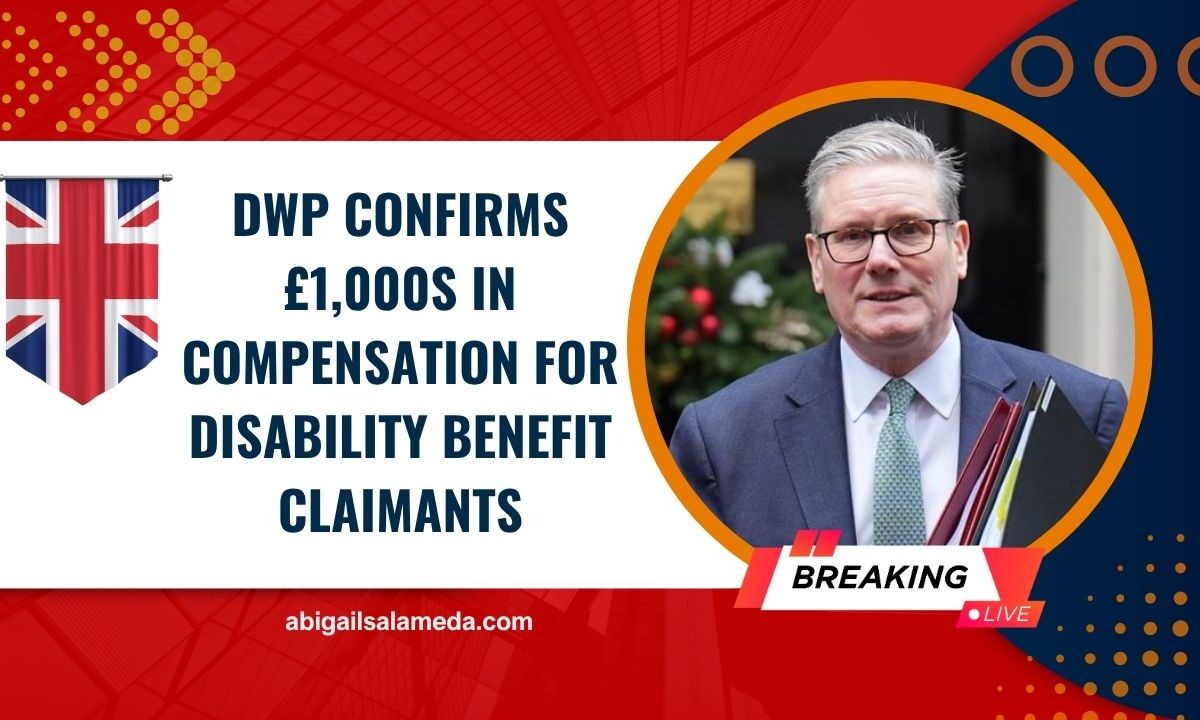Thousands of disability benefit claimants in the UK may be entitled to compensation worth thousands of pounds, following a major update from the Department for Work and Pensions (DWP).
The government has acknowledged that people who transitioned from legacy benefits to Universal Credit (UC) before 2019 missed out on Severe Disability Premiums (SDP) and Enhanced Disability Premiums (EDP)—resulting in significant income loss for many.
The latest figures estimate that nearly 57,000 people were affected, and the total cost of the repayment may reach £452 million.
Why Is Compensation Being Issued?
The issue stems from claimants being moved from legacy benefits like Employment and Support Allowance (ESA) to Universal Credit without proper financial protection. Many of these individuals lost vital disability premiums due to the absence of a transitional scheme.
A legal case, led by law firm Leigh Day, highlighted how some claimants experienced a loss of up to £180 per month, amounting to £5,000 or more per person over time.
Who Is Affected?
Claimants may be eligible for compensation if they:
- Moved to Universal Credit before January 2019
- Previously received ESA or other legacy benefits
- Missed out on SDP or EDP payments due to the transfer
- Experienced a drop in benefit income without transitional protection
According to the DWP’s annual report, many affected individuals no longer have an active ESA claim, which has made identification and processing more challenging.
How Many Cases Are Pending?
As of July 2025:
- Estimated affected claimants: 57,000
- Cases processed so far: Majority handled
- Remaining cases: Around 13,000
- Target resolution date: By September 2025
- Estimated total payout: £452 million
Compensation Breakdown
| Detail | Information |
|---|---|
| Affected Groups | ESA claimants moved to Universal Credit pre-2019 |
| Estimated Individual Loss | Up to £180/month |
| Estimated Compensation Per Person | Over £5,000 in some cases |
| Total Claimants | 57,000 |
| Processed Cases | Majority completed |
| Remaining Cases | 13,000 (to be resolved by Sept 2025) |
| Total Compensation Budget | £452 million |
What Is the Nature of the Compensation?
The compensation will be issued in two parts:
- Financial Arrears – Reimbursing the exact amount of lost income due to the missing premiums.
- Non-Financial Compensation – Payments for stress and emotional distress caused by the error (also known as injury to feelings).
Many claimants represented by Leigh Day have already received settlements for emotional damages in addition to their missed benefits.
DWP’s Official Statement
A DWP spokesperson said:
“We are fully committed to identifying claimants that are owed arrears and providing the financial support to which they are entitled as quickly as possible.”
The department has also emphasized that preventative measures are in place to ensure such errors do not happen again.
How to Check If You’re Owed Compensation
- Review your benefit history between 2016 and 2019.
- If you transitioned to UC and noticed a loss in your disability payments, you may be eligible.
- Contact the DWP or your local Jobcentre Plus for assistance.
- If you believe you were impacted, request a review of your case.
This latest DWP compensation update could bring relief to thousands of people who unknowingly suffered from years of underpayment.
If you or someone you know transitioned to Universal Credit before 2019 and lost disability premium payments, now is the time to act.
With compensation reaching into the £1,000s, reviewing your benefit history may be worth thousands of pounds.
Make sure to follow up with DWP before the September 2025 resolution deadline to ensure your case is assessed and resolved.
FAQs
Who qualifies for the DWP disability compensation?
Claimants who moved from legacy benefits like ESA to Universal Credit before 2019 and lost out on SDP or EDP may qualify.
How much could I receive in compensation?
Many claimants may receive up to £5,000 or more, depending on the duration and amount of lost disability premiums.
When will all compensation cases be resolved?
The DWP expects to resolve the remaining 13,000 cases by September 2025.




